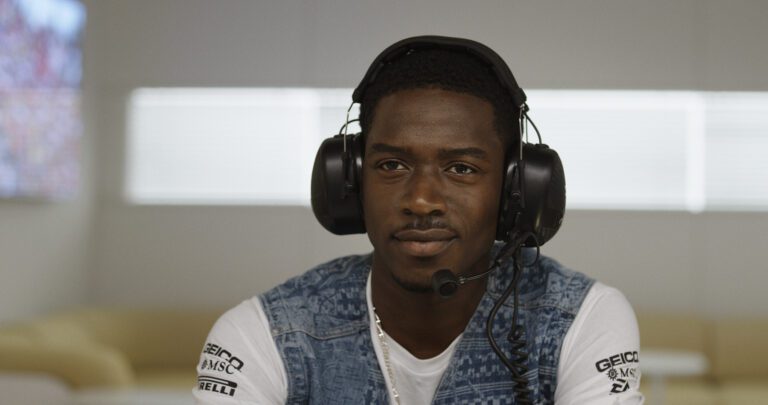Children of the ‘90s may well remember Face, the animated host of Nickelodeon’s preschool programming block back in the day. The network recently brought back the aptly-named character for a new music variety show entitled Face’s Music Party that premiered earlier this month. While still working on the children’s series, Dylan Farr made time to sit down with Casting Networks and provide a window into his role on the show. Farr worked as a post-production coordinator/script coordinator on the series, focusing his insights for this installment of A Day in the Life on the latter part of that role and providing a window into what it looks like in the niche area of animation. Should you be interested in that area of production or just someone who wants to gain better understanding about a role with which you’re not the most familiar, you can keep reading for a look at what the job of a script coordinator entails.
It’s good to see you, Dylan, and I would love to kick things off with an overview of your role, in general.
Sure. The name of the position is very literal in the sense that the script coordinator is going between the production department and the creative team, coordinating everyone’s input to make sure people are on the same page. The fundamental principle of the job is ensuring everyone is working off the same script. I help make certain that the final draft aligns with the final vision of the episode. And when it comes to recording sessions — when we capture the talent voicing the script — the script coordinator is responsible for ensuring we get all the lines we need from it.
Thanks for that summary, and now, let’s get into the details. What does an average day of work look like for you?
Every day is a little different from the next. If it’s a day that includes a story review, for example, that meeting will happen first thing in the morning. For that, I sit in on a meeting in which the storyboard artist is talking with the animation director, executive producer, showrunner, etc. My role during it is to just kind of be a fly on the wall as they talk through how the episode feels now that it’s visualized. At this point, you’re through the initial drafts of the script for that episode and on the final revision. You’ve helped coordinate that to ensure everyone is on board with the material. A lot of my job then is to prep it. I will take the script, highlight all of the lines that need to be read by the voice actors during the recording session, and send it out to them, as well as to our VO [voiceover] director and audio engineer. Working ahead is another aspect of the job — in the middle of doing that, you willl also be prepping the next script for a read-through, which is essentially a pre-recording session.
And what does your role look like during actual recording sessions?
If it’s an in-person recording session, the script coordinator would get to the studio early and set out physical copies of the script. We work remotely for Face’s Music Party, so everyone is already set at home with their material on recording days. From there, the voice actors perform their lines, and the director directs them. It is all pretty straightforward, except for circle takes, which someone might not know about if they’re not familiar with that world. Basically, a circle take involves a voice actor reading a line in different ways, and my job is to mark each take accordingly, flagging the one that the director selects. You mark it by circling the selected take — it’s another instance of the job being quite literal. Then after the session wraps, I upload everything so that the editor can cut it while using those notations.
So, that process just repeats itself from there?
Yes. When you record the voice actors’ performances for an episode — using the final draft of its script — that full audio from the recording session is not what actually ends up in the episode. They will continue to adjust the lines, which can include adding some and dropping others. When changes happens, we will do pickups, which are recording sessions for just those specific, updated lines. My role during those sessions is much the same, and it will also be my job to make those edits to the relevant part of the script beforehand and get the updated version to the voice actors, VO director, and audio engineer.
It sounds like a process in which you’re constantly adapting to changes. And before we wrap, can you share something that people might not realize about the job of a script coordinator?
I don’t know if people would generally expect how many pickup sessions go into getting the final episode delivered. Before becoming a script coordinator, I had this vision of animation production in which nothing about an episode’s script would change after it was finished. Turns out, it can change a lot. [Laughs] So, you have to really be on it and pay attention to the smallest of line edits. I know it’s the cliche thing everyone puts on their résumés, but the job really does require attention to detail. And when you’re getting to the final revisions, it can be an extremely quick turnaround of needing to get them recorded and done before the episode is delivered. That’s when the job is probably most stressful.
Before we wrapped Farr mentioned that his experience working on his current show has helped mitigate the more stressful aspects of his job. “Your team is there to support you,” he noted. “The people on Face’s Music Party were genuinely nice to work with — everyone was working together to make sure things didn’t fall through the cracks.”
Is “Script Coordinator” the job for you? Staff Me Up has all of the latest Script and Story Department Jobs that you can apply for today!
—
This interview has been edited and condensed.













